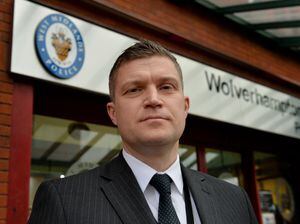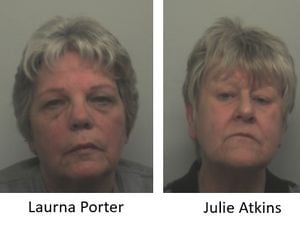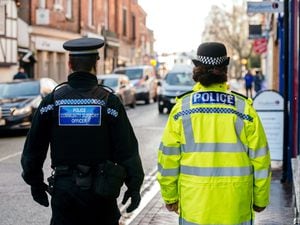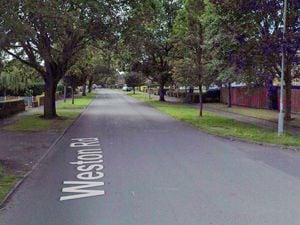'All we want is to fight criminals': How forms not crime are taking up scarce police time
Exhausted, overworked and bogged down with cases of spurious so-called hate crimes, bogus missing persons and vulnerable people with mental health issues.

Welcome to policing 2019, where officer numbers are slashed but the number of forms, risk assessments and minor crimes taking up police time continues to rise.
According to Sgt Richard Cooke, chair of the West Midlands Police Federation, forces across England and Wales are stretched beyond their limits due to low officer numbers.
But he says officers were becoming increasingly demoralised by the amount of time they were having to waste on "non-police matters" and bureaucracy.
These include 'non-crime hate incidents', which are incidents perceived to be motivated by hostility or prejudice by the victim or any other person.
'Extremely demoralising'
Sgt Cooke said: "It's extremely demoralising. Police officers want to fight crime, but they are now spending more and more time getting tied up with issues that some would argue should not be police matters."
He was speaking after the latest Police Federation survey found that the majority of officers felt stressed and believed the force was understaffed – results he said were "no surprise at all".
"Officers are frustrated with all the form filling. There are less of us but the bureaucracy certainly hasn't been reduced," Sgt Cooke said.
"We have still got to spend time filling in risk assessments, and a lot of these are for incidents such as very low risk hate crimes.
"I am not saying we should not be investigating them, but we are spending a lot of time on things such as non-crime hate incidents.
"You could get an incident where someone has parked in front of their neighbour's drive.
"The complainant may tell us that the person has done it because they don't like them because they are gay, or black or white or Muslim.
"We may find out there is clearly no crime, but it takes up officers' time. Potentially we may have to go out and question the individual. It is effectively an exercise in futility.
"If someone is attacked or suffers some form of abuse, the public rightly expects us to deal with the culprit and lock them up.
"But in these cases people may question our use of resources when an officer is spending 45 minutes to an hour writing up reports instead of catching criminals.
"Officers would rather be able to use their discretion more, enabling them to prioritise investigating high risk and medium risk crimes."
Helping the vulnerable
According to Sgt Cooke, responding to incidents involving the safety of vulnerable people and mental health issues were now part of officers' daily lot.
He cited a recent shift he did in Walsall as an example, where his first call involved a depressed person who was suicidal and needed support.
"The second call was a guy with learning difficulties who was having a domestic dispute with his family, and then we got called to Walsall Manor A&E, where a guy, again with mental health issues, was kicking off because had not been seen by doctors," he added.
"We spent the whole shift dealing with vulnerable people. These are important issues which need to be dealt with, but they are taking officers away from fighting crime.
"People want to see us catch robbers and burglars, but we just haven't got the numbers to do everything."
'Service of last resort'
Sgt Cooke says the situation has worsened in recent years due to cuts to mental health and support services, meaning the police were now seen as the "service of last resort" to call when things go wrong.
"When social workers go home on a Friday afternoon and they don't have much cover on the weekend, it's the police who pick up the slack," he said.
Missing persons cases were also straining police resources, Sgt Cooke said.
"The vast majority of missing persons cases involve kids in care who go out of the care home and miss their curfew.
"They are immediately classed as a missing person and we have to commence a search, expending a great deal of time and resources in the process.
"Is this really something the police should be dealing with?"
He added: "There is simply not enough officers on the frontline to deal with the number of incidents. Sadly, this means they are having to make horrible decisions on what crimes they can and can't pursue."





